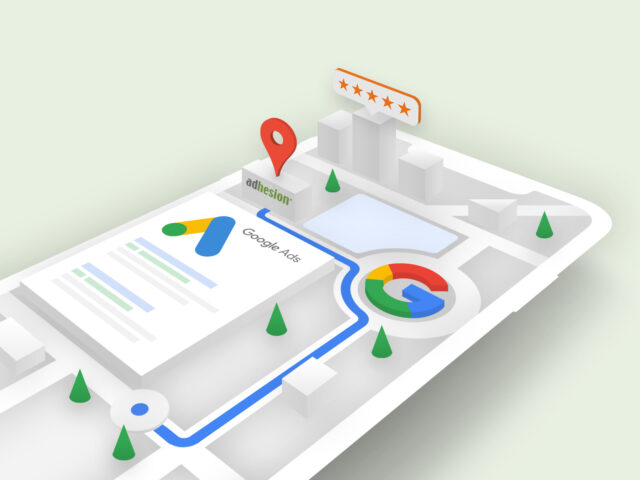Updated: Apr 15, 2025
Author: Tony Waldegrave
There’s a lot of hype, unsolicited pitches, and mixed stories relating to the pros and cons of advertising on Google Ads (known as AdWords). All this noise can make it hard for small business owners to know what to do, who’s advice to trust and how to best go about advertising their business online.
In our 18+ years experience of managing online advertising campaigns, we’d recommend that Google Ads (AdWords) be at the top of the advertising must do list for most small businesses in NZ.
Well because most audiences will typically go to Google to find out their best options when considering purchasing a product or a service. A search on Google is the default place that we mostly all go to as consumers to find out about things, and to help inform our research into deciding our best options in regards to a prospective purchase. And this is unlikely to change in the near future with Google now being our no 1. on the go mobile digital assistant.

Targeting this relevant consumer activity in Google search provides a relatively simple way of connecting with customers that are in the market, right now and at that very moment that they are about to make an enquiry or purchase. This is the main benefit of advertising with Google Ads (AdWords).
In many ways, Adwords advertising is akin to why businesses use to advertise in the yellow pages directories in the past. It was once the default reference point for consumers looking for suppliers and thus represented an essential way to place your business offering in front of an enquiring market.
Of course, Google is now the online tool we use daily in NZ and, accordingly, Adwords is at the top of the must advertise-on list for many businesses and this is also largely why Google has grown to become the most successful and largest advertising provider in the world today.
The Google Ads platform is very flexible and has become quite sophisticated allowing a wide range of targeting options so you can target prospective customers by location, language, age, device, day of the week and time of the day and by those keywords that are most relevant to your business.
If you are away or you going through a busy period, you can pause the advertising and restart it as and when required.
There are multiple types of targeting strategies for the GDN including:
We often recommend running Remarketing ads in conjunction with search campaigns as this tends to improve the overall volume of enquiry generation and reduces the average cost per enquiry.
It costs nothing to set up yourself and you then pay on a click basis. How much you spend every day is limited by the daily maximum budget that you set. Google states that you will not spend more than the daily budget over the course of a month. Because Google smoothes your budget over a month there may be days when you underspend and days when you overspend the daily budget.
Click costs can vary considerably and differ by keyword and targeting variables like location and ad position. Click costs are determined primarily by the level of competition for that particular keyword.
Typically $5 per day is the minimum but practically you should start at $10 or $15 per day and some campaigns may need more than this.
Your ads will stop showing once your daily budget is spent and then the advertising will reset for the next day.
First off make sure that your website is up to standard. Ideally, it should be fully browser responsive so that it's optimal for viewing on mobiles and desktops.
It should lay out the content about your products and / or services in a clear and easy-to-navigate manner and overall impart a good user experience.
You can then start by setting up a Google Account and then an Google Ads account. Then complete the following summarised steps:
You can manage Adwords yourself but often the time required and the lack of knowledge will result in an advertising campaign that is far less effective than we managed by experts in this field.
A good third party Adwords management company will expertly manage and continue to optimise your campaign for you and the benefits should exceed the cost of the management.
It’s best to select a local management company with a good reputation and one that will manage “your” account rather than your campaign within “their” account. This then gives you the flexibility to assign management back to yourself and or reassign to an alternative manager and the learnings and associated data remain within your account. It also means that management fees will be more easily distinguishable from click and media costs.
Your Google Ads (AdWords) campaign will likely be your top driver of leads and enquiries. The competition within Google Ads is increasing all the time, so it is imperative that your Adwords strategy is optimal and the campaign assets are properly managed.
For assistance and advice with your Google Ads (AdWords) advertising strategy, contact Adhesion.
Our reputation goes hand-in-hand with our team’s dedication to best practice. As a registered Premier Google Partner, our team refreshes our certifications every 12 months — A tradition we started over a decade ago. To stay ahead, we are always looking forward to upcoming certifications for online advertising, website development and search engine optimisation.
Blog • Terms • Privacy • 110 Mount Eden Rd, Mount Eden, Auckland 1024 • Mon–Fri 8:30am–5pm
© 2007-2025 Adhesion